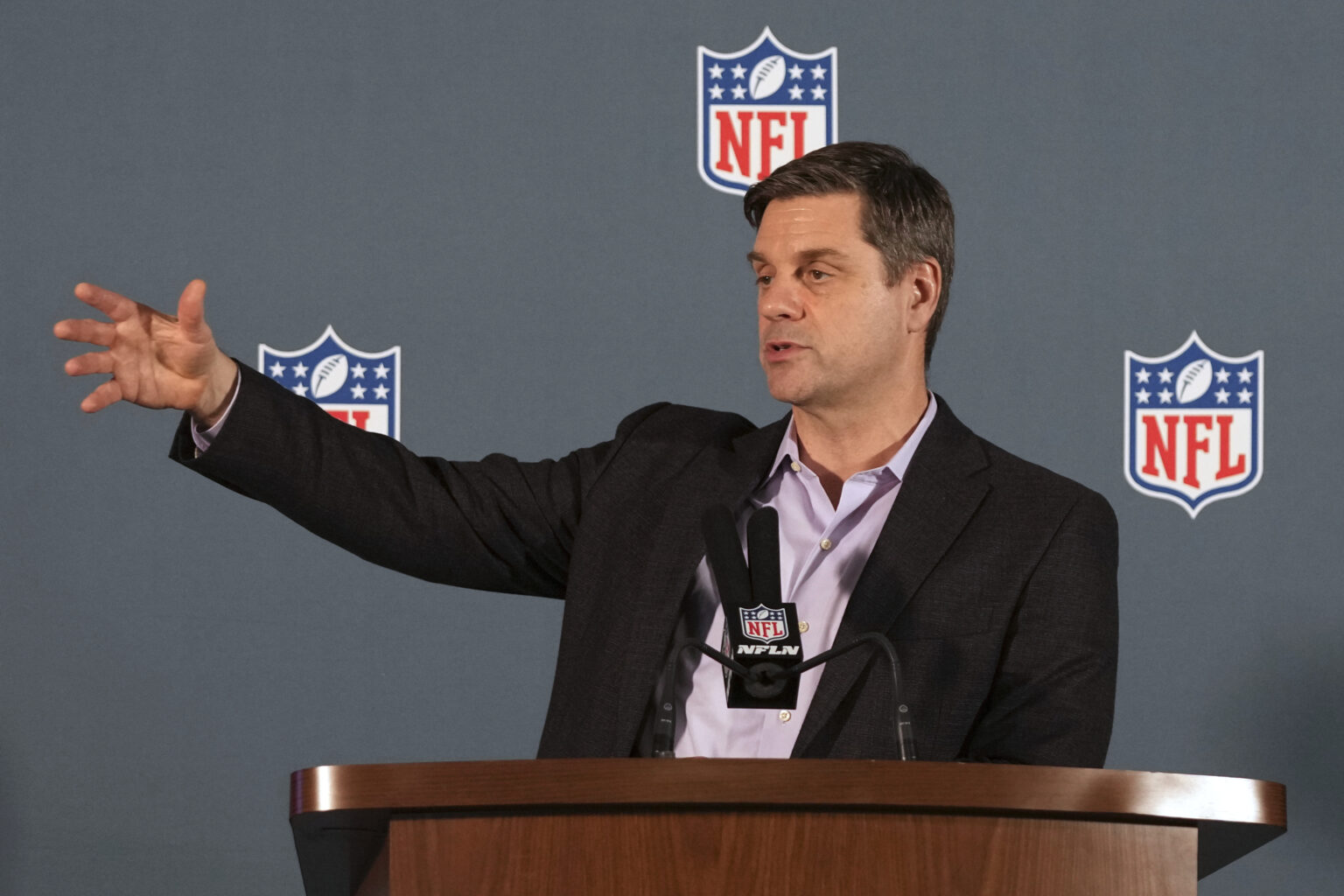New Leadership in Professional Golf: Navigating a Divided Sport
As Brian Rolapp steps into the role of Chief Executive Officer of the PGA Tour, his primary mission is clear: foster harmony among players, fans, sponsors, and media partners while addressing the ongoing rift within professional golf. Central to his agenda is resolving the contentious relationship with LIV Golf and its Saudi financial backers, aiming to unify a sport fractured by competing interests and rivalries.
Transition of Power Amidst a Turbulent Landscape
Rolapp, a seasoned executive with extensive experience in the National Football League, was officially introduced as the PGA Tour’s new leader on Tuesday, succeeding Jay Monahan. Monahan, who has been the face of the tour since 2017, became synonymous with the controversy surrounding LIV Golf-an upstart league backed by Saudi Arabia’s Public Investment Fund (PIF), which has lured away many of the sport’s top talents over the past three years.
The PGA Tour has announced a gradual transition plan for Monahan, signaling ongoing adjustments in the evolving professional golf scene. Rolapp’s immediate focus will be to steer the organization through this period of change and to chart a strategic course forward.
Priorities and Challenges Ahead
During his introductory remarks in Cromwell, Connecticut-home to this week’s Travelers Championship-Rolapp emphasized the importance of fan engagement. “The audience clearly wants to see the best golfers compete against each other,” he stated. “That remains a priority for us.” However, he refrained from elaborating on the current status of negotiations with the Saudi PIF, which has been a focal point of controversy and speculation since the tour announced a potential partnership with Saudi interests in June 2023. Despite high-profile involvement, including former President Donald Trump’s intervention, final agreements have yet to be finalized.
Rolapp is expected to play a pivotal role in these negotiations, taking on many of Monahan’s operational responsibilities. While Monahan will continue to serve on the tour’s influential policy board and the board of PGA Tour Enterprises until 2026, Rolapp will lead day-to-day operations and strategic discussions.
Leadership Changes Reshape the Golf Industry
The past year has seen a remarkable reshuffling of leadership across the professional golf world. Notable appointments include Scott O’Neil replacing Greg Norman as LIV Golf’s CEO in January, Derek Sprague assuming the presidency of the PGA of America last December, and Mark Darbon stepping into the role of CEO at the R&A-organizers of The Open-last July. Additionally, Trevor Immelman became Chair of the Official World Golf Rankings in April, and Craig Kessler took the helm as CEO of the LPGA in May.
This influx of new executives, many of whom are relatively untainted by the sport’s recent controversies, signals a potential shift toward fresh perspectives and strategic innovation in professional golf’s future.
Fresh Perspectives and a Clean Slate
Rolapp approaches his new role with a sense of openness, describing his entry as a “blank slate” and acknowledging the need to learn about the sport’s complexities. His background is rooted in the NFL, where he served for over two decades, most recently as the league’s chief media and business officer. Although he was once considered a potential candidate to succeed Roger Goodell as NFL commissioner, Rolapp emphasizes that his focus has always been on the opportunities ahead rather than past ambitions.
From Lacrosse to Golf: A Personal Connection
Growing up in the Washington, D.C. area, Rolapp played lacrosse at Bullis School in Maryland, earning first-team All-Met honors before continuing his athletic pursuits at Brigham Young University. His initial exposure to golf came during high school when he worked at Congressional Country Club in Bethesda-an experience he fondly recalls as his introduction to the game, on employee day, learning to swing a club for the first time.
Though he plays golf sparingly-about five to ten rounds annually-Rolapp jokes about keeping his handicap private, emphasizing that his passion for the sport is more about enjoyment than competition.
Financial Strengths and Strategic Partnerships
The PGA Tour remains financially robust, with media rights agreements secured through 2030 with major broadcasters such as CBS, NBC, and ESPN. According to recent tax filings, the tour generated approximately $1.8 billion in revenue in 2023, with net assets totaling around $4.3 billion. Compensation for Monahan in that year exceeded $23 million, encompassing salary, bonuses, and retirement benefits.
Furthermore, the tour is bolstered by a significant investment from the Strategic Sports Group (SSG), which includes prominent owners like the Boston Red Sox’s John Henry and Tom Werner, New York Mets owner Steve Cohen, and Atlanta Falcons owner Arthur Blank. The SSG has committed $1.5 billion to the PGA Tour, with potential for further growth, reflecting confidence in the sport’s long-term prospects.
Shifting Leadership and the Future of Golf
The professional golf industry has experienced rapid leadership changes recently, with new CEOs and chairpersons at key organizations. These include LIV Golf’s new CEO, the PGA of America’s head, the R&A’s chief executive, and leaders of the Official World Golf Rankings and LPGA. This wave of fresh leadership suggests a strategic pivot, possibly aimed at resolving conflicts and fostering innovation in a sport still grappling with its identity.
Engaging the Golf Community
In his initial interactions with players, Rolapp met with a group of golfer representatives, including legendary figures like Tiger Woods. He described the meeting as “highly productive” and expressed his commitment to open dialogue. “I plan to speak with as many players as possible-over 100-to understand their perspectives,” he explained. “My goal is to learn what we’re doing well and identify areas where we can improve.”
As the PGA Tour navigates this period of transformation, Rolapp’s leadership will be instrumental in shaping the sport’s future-balancing tradition with innovation, and rivalry with unity-ensuring that professional golf remains vibrant and competitive for years to come.

